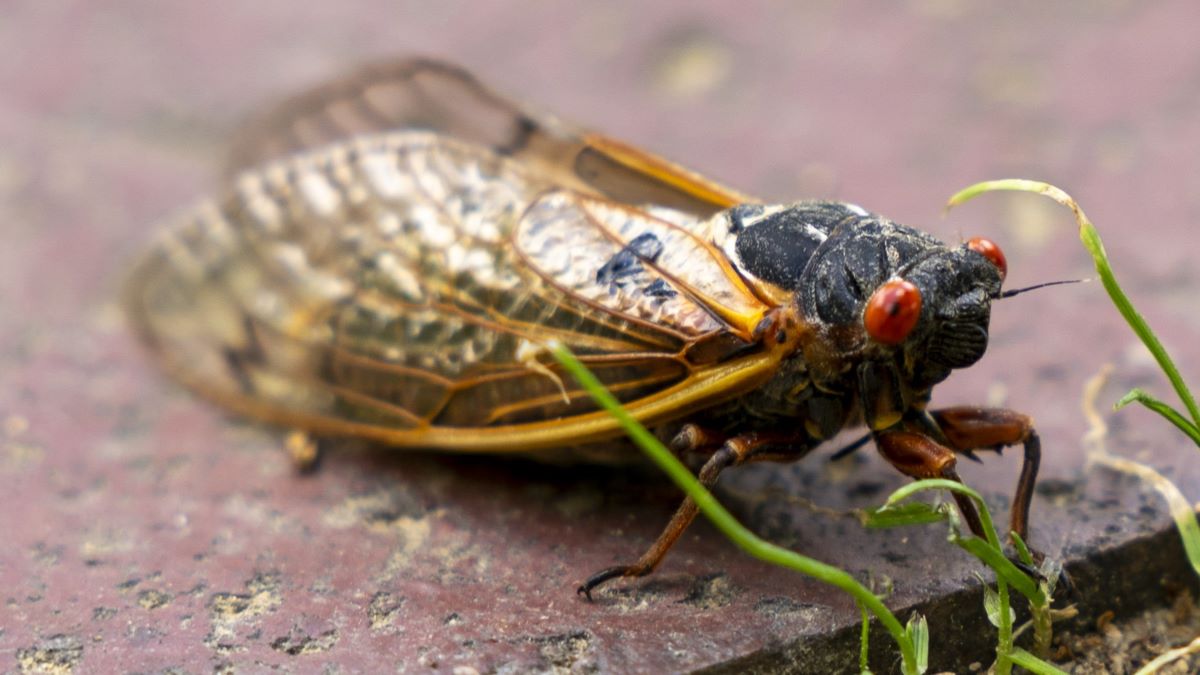The state of Illinois is poised to experience a rare phenomenon that only happens once every 221 years: the emergence of two different broods of periodical cicadas, a winged insect that spends most of its time underground until they emerge to breed. The double-brood cicada emergence are expected to flourish all over the state in record numbers. So when are they coming? Experts say very soon.
There are actually two types of cicadas: annual cicadas, which appear every year after living underground for around 2 to 5 years. Generally, they’re active from around July to September. Periodical cicadas, however, are a different story. They are some of the longest living insects on the planet with a lifespan of 13 to 17 years.
They live underground and eat tree roots and tend to emerge around late May or early June. They’ll leave behind exoskeleton shells after they molt, usually after they climb a tree. The Illinois periodical cicadas are usually dark brown and black in color on their bodies with reddish-brown colors where the wings are attached to the body. Trillions of the creatures are expected to emerge and some of them have already started appearing in the Southern part of the state. More on that in a moment.
Cicadas known for their “singing,” which males do to attract females. They pose no threats to humans or pets, but there will be so many of them they will definitely be noticed. Oh, and they’re edible. Apparently they taste like almonds.
The 2024 cicada broods are known as Broods XIII and XIX. Brood XIII emerges every 17 years and Brood XIX emerges every 13 years, with 2024 marking the rare dual emergence. The last time this happened was 1803, and it won’t happen again until 2245.
While they’ll be emerging at the same time, they won’t be coming out in the same place, with Brood XIII appearing in the northern part of the state and Brood XIX handling the center and southern part of the state. Central Illinois will see huge quantities of both.
Dr. Ken Johnson of the University of Illinois told CBS News the typical time of emergence for Northern Illinois is “late May or early June in northern Illinois,” although he expects that it might happen earlier in Chicago due to “urban heat.”
The warmer weather will probably make the cicadas come out earlier than expected, because the cicadas are “cued” by the heat in the soil. A study from the University of Connecticut called Climate Change and Periodical Cicadas said that the “climate is warming and precipitation patterns are changing” and that “periodical cicada life cycle seem sensitive to these factors.”
After the cicadas emerge and spend four to five days singing and mating, the females lay eggs – about 500 to 600 each. After about a month, they’ll begin to perish and the cicada apocalypse will come to an end. The eggs however, are just getting started. After six to ten weeks, they’ll start to hatch and then drop to the ground to start eating grass roots.
After a nice meal, they’ll start to dig into the soil and begin the process all over again.

